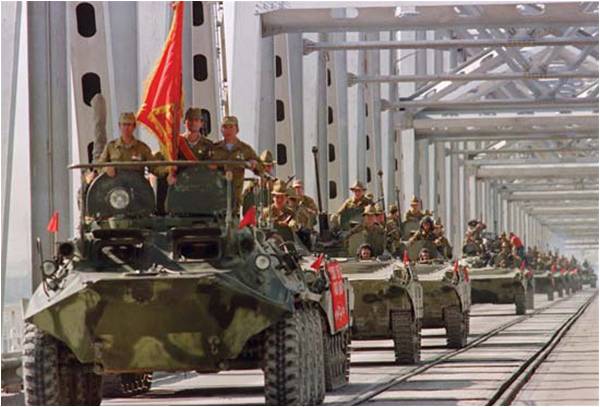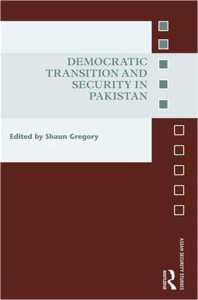

Security in Pakistan
Gregory, Shaun (edited) (2016)
Oxon & New York : Routledge
Around the world, every day legions of ‘experts’ on Pakistan try to interpret it, but most fall into the temptation of using the hackneyed concepts of ‘failed state’, ‘terrorist state’, ‘deep state’ etc to describe the country. This book edited by Shaun Gregory does not fall into any such pitfalls.
The authors, on the basis of their research have made an attempt to avoid falling into the trap of those who ‘love to hate Pakistan’. Introducing the book, the editor correctly writes “In one sense at least, Pakistan continues to fail. It fails to meet the expectations of pessimists who have envisaged its unraveling, collapse, fall into the abyss, descent into chaos, “Talibanisation” and slide to Armageddon.”
Ian Talbot, featured in this book, has looked at historical perspectives on democratic transition and security in Pakistan. Like many post-colonial countries, Pakistan too has passed through various stages; some are experienced by other developing countries too, while a few are unique to its political condition and geographical location, which had been exploited by the external actors to suit their interests in the region. At present, Pakistan is facing the rise of religious radicalism and violence. Ayesha Siddiqa, also featured in this compilation, has used Israeli scholar Uri Ram’s heuristic model to explain the interaction between the state and religion and the form of state and religious nationalism that emerges from such an interplay. Tahir Kamran has talked about the rise of the Khatam-i-Nubuwwat movement in Pakistan and politics of exclusion.
The Soviet intervention in Afghanistan in 1979 and the following war had changed the socio-political structure of Afghanistan and Pakistan. The rise of religious fundamentalist violence has transformed the political contours of Central and South Asia. Iftikhar Malik, also featured in this book, talks about the Pashtun identity and its transformation. He writes “the Taliban might have appeared rustic, raw and even medieval to secular and liberal groups, yet for many Muslims in South Asia and elsewhere especially the younger unemployed clusters, they symbolised a new form of empowerment that could defy both internal and external forces.”

Antonio Giustozzi in this book discusses the organisational structure of the Taliban which he finds federative in character ‘with three autonomous political shuras at the top and over a hundred other shuras at the bottom’. He also discusses the phenomenon of foreign jihadist volunteers
Yunus Samad talks about the situation after the 2013 elections in Pakistan. He writes that Nawaz Sharif was publicly committed to dialogues with TTP but realised that it is not a simple process and pursued a strategy of opening negotiations with the TTP and simultaneously preparing public opinion and the army for military operations.
Due to absence of democratic space, since 1947, and ‘constructed’ threat from India, the Pakistan Army became a centre of power.Within a decade after the birth of Pakistan, the first military coup took place. Since then many times the military took over power and during civilian rule it has managed to have the last say on most issues, especially on foreign and defence. Shaun Gregory writes that security establishment mindset remains an important obstacle to full democracy in Pakistan, though it is by no means the only such obstacle.
"In one sense at least, Pakistan continues to fail. It fails to meet the expectations of pessimists"
Many fallacies are reproduced around Pakistan’s economy economy. Although it receives loans and aid, Pakistan’s economy has performed reasonably well and has managed to maintain an average of 5 per cent growth in the past twenty years. From 2003-2008 it has been able to maintain a growth rate of around 6 per cent of GDP. Yet poverty reigns due to unequal distribution pattern. Matthew McCartney discusses extensively in this book Pakistan’s economic boom after 2003.
Discussing Pakistan is not complete without discussing India, with which it has fought wars and remains in either various shades of tension. One of the major reasons for the tensions between the two countries is over the status of Jammu and Kashmir. Victoria Schofield in this book has traced the history of the conflict. Ishtiaq Ahmed, on the other hand, talks about economic cooperation between India and Pakistan and the prospects for regional integration. On the issue of talks and tensions, Rahul Roy-Chaudhury (196-210) concludes, “unless both are willing to compromise on their expectations, amidst evolving domestic complexities and a precarious regional security environment, normalisation of bilateral relations will continue to remain elusive...”

